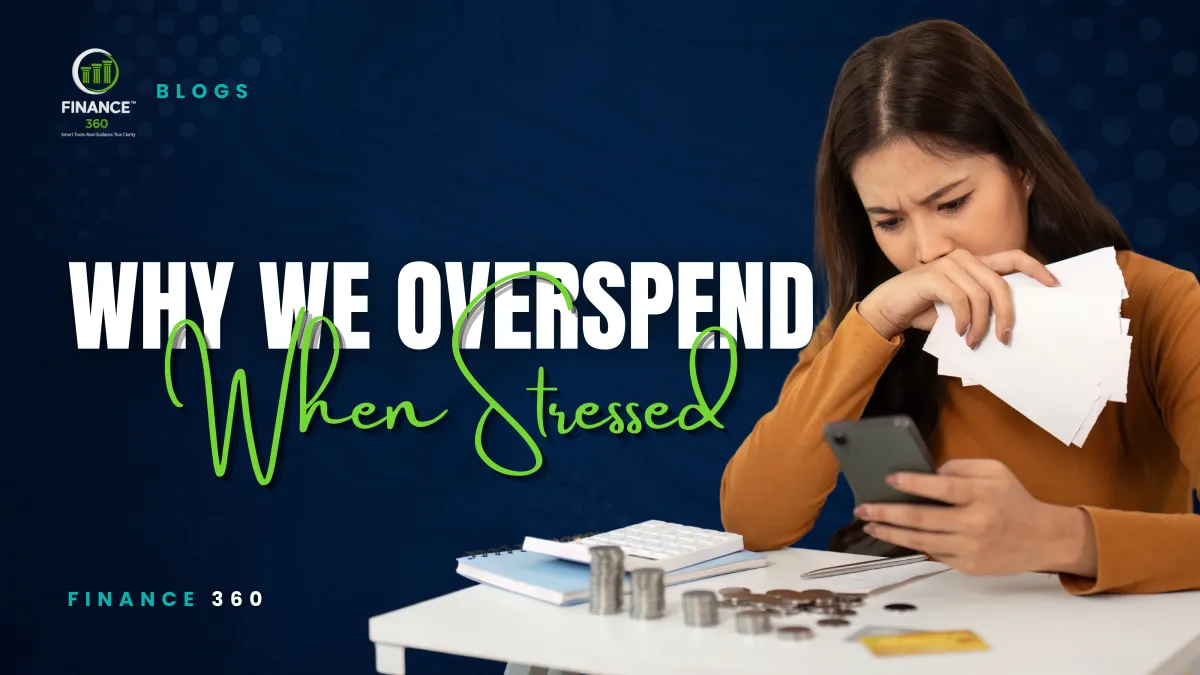
Why We Overspend When We’re Stressed (and How to Stop)
You come home exhausted, nerves frayed from the chaos of the day, and somehow, you're drawn to your favorite shopping app. “Just one thing,” you whisper. A small indulgence. A reward for enduring. But as the cart fills, so does the quiet guilt. You’ve been here before.
You're not alone.
A recent CNN survey found that 71% of Americans identify money as a significant cause of stress. And when we’re anxious, we don’t always reach for logic, we reach for relief. A new pair of shoes. A shiny tech gadget. Something, anything, to help us feel in control again.
But this isn’t carelessness. It’s survival. Emotional spending is often less about excess, and more about escape.
And the moment we see it for what it truly is, we can begin to reclaim our power, one choice at a time.
The Psychology of Impulse

“Doom spending.” It sounds dramatic, but it’s a real term.
Experts at Very Well Mind define it as spending money in response to anxiety or stress about the future, buying things to feel better, even when you know it’ll probably hurt later.
According to a study by Intuit Credit Karma, 27% of Americans say they’ve done exactly that, spent money to cope with stress. And 40% say they’re doing it more than they did a year ago (Source: Vice)
Why does it happen?
When we’re anxious about the future, our brains tend to imagine the worst. Dr. Christopher Fisher, director of outpatient psychiatry at Northwell Zucker Hillside Hospital, says the body reacts like the danger is already here. Your heart races, your thoughts speed up, and you just want something to feel better fast. For a lot of people, that “something” is spending. (Source: Very Well Mind)
It’s not a plan, but a reaction. In that moment, comfort feels more important than logic. But after the buy button comes the crash: guilt, regret, and sometimes even debt.
The Regret That Follows the Receipt

Buying something to lift your mood can feel harmless in the moment. A quick pick-me-up. But for many people, those small purchases stack up, fast.
By the end of 2024, Americans carried over $1.21 trillion in credit card debt, according to the New York Federal Reserve. (Source: CNBC)
That’s not just a number, but also the pressure behind sleepless nights, minimum payments, and missed goals.
A Clever Real Estate Survey revealed that:
74% of Americans say they struggle with overspending
45% have literally cried over their spending choices
And 1 in 6 say their spending habits ruined their lives
This isn’t just about budgeting. It’s about how we cope.
Spending under stress isn’t a character flaw. It’s a warning sign. And when we ignore it, the emotional cost runs deeper than the financial one.
So What Can You Do?

You don’t need a spreadsheet. You need self-awareness and small, protective habits:
Notice your triggers – After work? Late nights? Right before payday?
Delay the impulse – Wait 24 hours. Most cravings fade.
Replace the ritual – Walk, journal, breathe. Don’t shop.
Unsubscribe and uninstall – Protect yourself from temptation.
Start small – Save $20 instead of spending $200. Control is built, not bought.
You’re Not Alone
Even when you feel ashamed, especially then, remember this:
You’re not bad with money. You’re just trying to self-soothe.
But now, you’re doing it with awareness, and that’s the first step toward lasting change.
Ready to Take Back Control?
Explore how Finance 360 can help you reset your habits, reduce financial stress, and build lasting confidence with your money.
"Start your financial journey today with Finance 360!"
